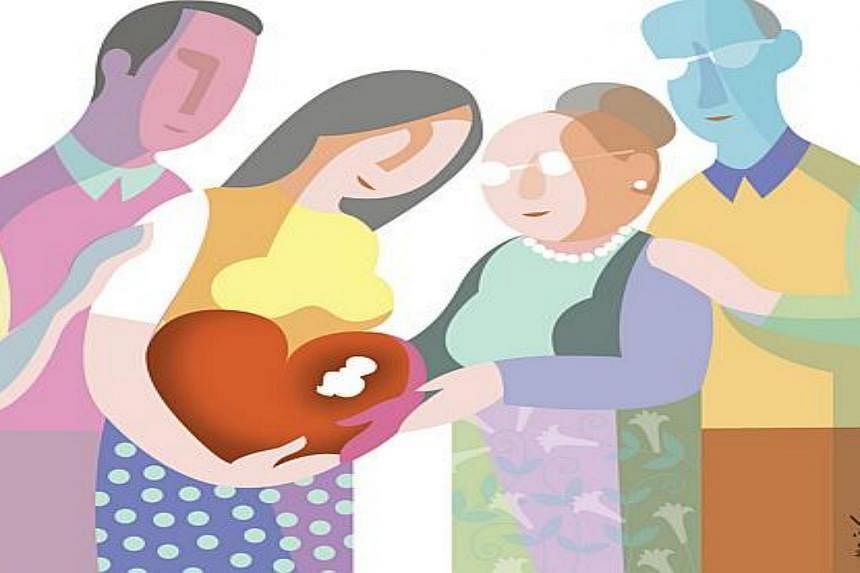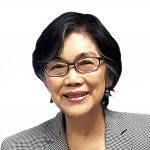As Singapore's ambassador to the United States, I was frequently asked to speak at women's forums for professionals, executives and students. They wanted to learn from women in top positions about how they got there, how to prepare for leadership roles and how to achieve success, however you define it. I believe many young women in Singapore ask those questions as well. The 50th anniversary of the nation's independence gives us time to ask if anything has changed in the issues listed here.
At one forum, I was asked a question I had never encountered before. "How did you, an Asian woman, come to be what you are? Isn't it true that, in Asian culture, women are supposed to be kept subordinate to men?"
I thought for a moment and responded spontaneously and truthfully. I told the young students in the audience that Asian culture has a way of compensating. I told them that, when I was born, my mother sent my birth details to a fortune teller in Hong Kong to have my horoscope written up. Back came the forecast. My mother was told: "Your daughter's life is like a man's. She will be capable and do many things."
It is amazing how often my mother repeated to me that my life was like that of a man. I do not know in her world of the late 1940s and 1950s what that meant to her. She did not know what impact it had on me but, by repeating that line, she was equalising the gender gap for me. She was telling me in the language of her times that I was as good as any man and could do what any man could. This positive reinforcement stayed with me for years. It gave me the confidence to do things and to move forward. So I never felt constrained or restrained as a girl child.
Growing up a Chinese daughter, I found some aspects of Chinese culture quite egalitarian. Even then, passing examinations was the most important thing in our lives. If you fared well in school exams, it immediately put you in a special position or circle. Families were proud of children who did well in school. A girl who did well in school became an "honorary boy". I ran around with my male cousins and did rather tomboyish things.
From school to university and graduate studies to my first serious job in academia, I can truly say I did not face any serious hurdles that I could put down to gender bias. Singapore was undergoing great political change. It was a transition from colonial government to self-government and to separation and independence. It was a time of decolonisation. We needed educated people. There was a shortage of manpower, so woman power was welcomed. Singapore practised universal suffrage as soon as elections were held. Women did not have to fight for the vote. The Women's Charter that was adopted by the PAP government in 1961 protected women's rights, and guaranteed greater legal equality to women in marriage and divorce. The Charter abolished polygamy.
I was fortunate that my parents left me to decide what I wanted to do. I enrolled to study political science. My father asked me if I would go to jail for this. I said no and carried on. I started out as a university academic. I have been asked many times if I ever found gender working against me in the university. I replied that honestly I did not know. Whenever I was not promoted, I was not certain whether it was my politics or my gender that had worked against me. I thought it was my politics. Later, I thought it was both. But it never bothered me not to be promoted. I loved my work. I was passionate about being an academic - about teaching, researching and writing. And I put in long hours. The market decides if you are good. My market was my students and my peers in the field, other political scientists and social scientists local and international.
I entered diplomacy in 1989 and became the first woman in Singapore to be appointed an ambassador. I became Permanent Representative to the United Nations that year and Ambassador to the United States in 1996. I was not given just a token posting as a woman, as happens in some countries. In fact, they were among the top postings for the Foreign Ministry. It was unexpected for me, and my experience was a happy one with a totally supportive ministry.
I have also been asked frequently if being a woman is a plus or minus in diplomacy. I honestly think, in some aspects, it helped to be a woman. For instance, most host governments, except conservative ones, try hard to be helpful or seem to be helpful to women diplomats. During my time in Washington, Oman, Bahrain and Jordan sent women ambassadors to the most important capital in the world. I believe these Arab governments were making a point about being modern and progressive.
Charm always works, for both men and women. Who wants to spend time with someone who is utterly without charm? Women feel that men help other men because they do "guy things together", so women feel disadvantaged. I think men feel that women ambassadors do the "sisterhood thing", helping one another, and they feel disadvantaged too. In fact, gender is less important than being good at what you do and working hard at what you do. And if you happen to represent a serious country, you will be treated seriously.
If there is one major obstacle women must fight, it would be fear of ambition and lack of ambition. Women who pioneer in their chosen fields will tell you that they did not allow negative talk or whispers about "ambitious" women, usually not meant to be complimentary, to hurt them or deter them in any way. I think it is much better these days, but there was a lot of this unkindness in my time.
Women should define for themselves what they will individually accept as success. If what you want initially does not work out for your work-life balance, change the job. It is not a sign of failure, but a sign you want something that suits you better. With regard to leadership, it comes down to passion and wanting to do something. I believe to be given space from omnipresent parental instruction while one is growing up helps build confidence and self-reliance. Nothing works like being given responsibilities while growing up. It forces one to think outside oneself, which is becoming harder and harder in today's context.
The writer was Singapore's ambassador to the United States from 1996 to 2012. She now chairs the Lee Kuan Yew Centre for Innovative Cities at the Singapore University of Technology and Design.


